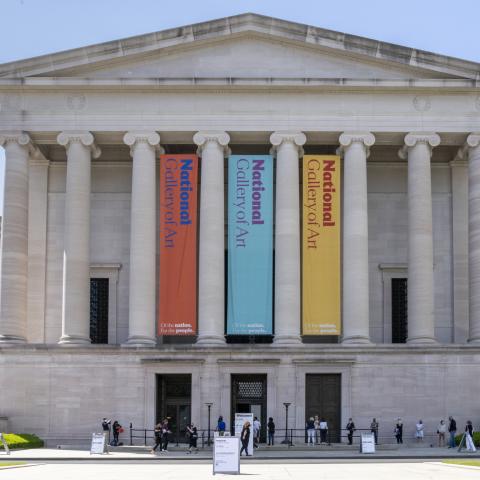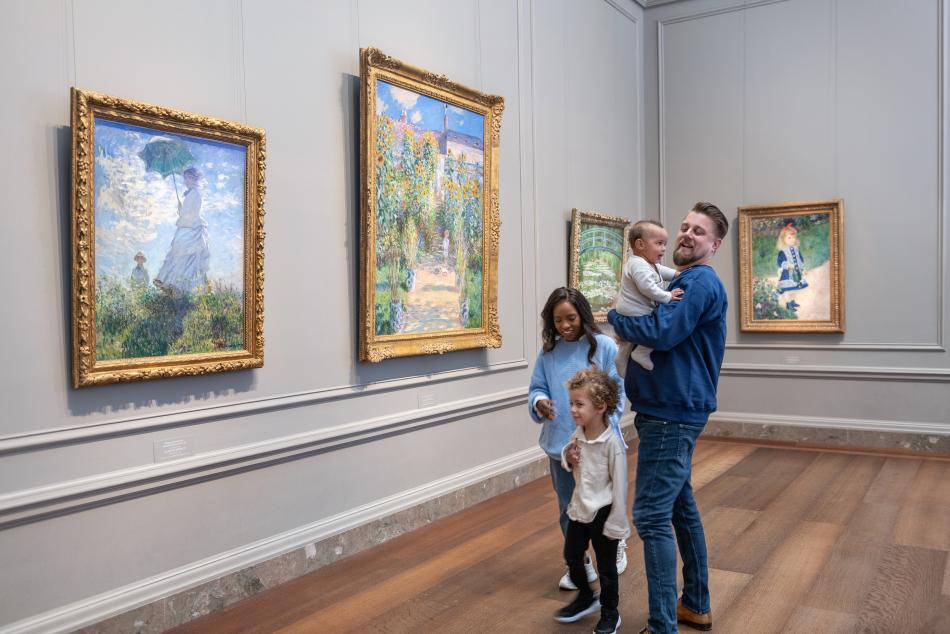Sunlight and Shadow: The Newbury Marshes
c. 1871/1875
Martin Johnson Heade
Painter, American, 1819 - 1904

The first pictures of marshlands by Martin Johnson Heade featured the environs of Newbury and Newburyport, Massachusetts, near the mouth of the Merrimack River. Perhaps attracted by John Greenleaf Whittier's poetry that celebrated the local landscape or more likely drawn there by his acquaintance with Bishop Thomas March Clark of Newburyport, Heade discovered the area sometime around 1859. By the end of his career he had executed more than 100 marsh subjects, a body of work that accounts for almost one-fifth of his entire known oeuvre as a painter. Over the course of this series Heade captured the essential character of the wetlands environment. He depicted the tides, meteorological phenomena, and other natural forces that shaped the appearance of the swamp and showed how the land was used for hunting, fishing, and the harvesting of naturally occurring salt hay. No other artist of the era explored and analyzed the unique qualities of the marshes in such a sustained and detailed way.
Sunlight and Shadow is a particularly masterful example of how Heade balanced many countervailing forces in his wetland compositions. The serpentine line of the tidal creek receding into the open plain on the right is offset by the visual weight of the haystack and apple tree on the left. The rhythm of the creek's movement is complemented by the undulating wave pattern that the treetops and clouds trace across the sky. The pink clouds are mirrored in the shallow pool of water at the lower center of the painting, and the form of the tree leaning left is echoed in the sweep of the high thin clouds placed in the upper right corner. Finally, the painting's primary motif, sunlight and shadow, seen, for instance, in its intricate cloud shadows and the subtle movement from light to dark across the body of the haystack, informs and unites all its visual elements.
Sunlight and Shadow: The Newbury Marshes joins other masterworks by Heade at the National Gallery, includingCattleya Orchid and Three Hummingbirds and Giant Magnolias on a Blue Velvet Cloth. The Gallery's permanent collection includes a remarkable example of each of the three distinctive subjects that defined Heade's singular career—hummingbirds, flowers, and marshes.

West Building Main Floor, Gallery 65
Artwork overview
-
Medium
oil on canvas
-
Credit Line
-
Dimensions
overall: 30.5 x 67.3 cm (12 x 26 1/2 in.)
framed: 54.29 × 90.49 × 7.94 cm (21 3/8 × 35 5/8 × 3 1/8 in.) -
Accession Number
2010.74.1
Artwork history & notes
Provenance
(Stuart P. Feld, New York); purchased 1967 by John Wilmerding; gift 2010 to NGA.
Associated Names
Exhibition History
2004
American Masters from Bingham to Eakins: The John Wilmerding Collection, National Gallery of Art, Washington, D.C., 2004-2005, no. 15, repro.
Inscriptions
lower right: M J Heade
Wikidata ID
Q14346975

